Peugeot 5008 vs VW Caddy - Differences and prices compared
Compare performance (325 HP vs 150 HP), boot space and price (37600 £ vs 27800 £ ) at a glance. Find out which car is the better choice for you – Peugeot 5008 or VW Caddy?
Costs and Efficiency:
When it comes to price and running costs, the biggest differences usually appear. This is often where you see which car fits your budget better in the long run.
VW Caddy has a evident advantage in terms of price – it starts at 27800 £ , while the Peugeot 5008 costs 37600 £ . That’s a price difference of around 9835 £.
Fuel consumption also shows a difference: VW Caddy manages with 0.50 L and is therefore decisively more efficient than the Peugeot 5008 with 2.70 L. The difference is about 2.20 L per 100 km.
As for electric range, the Peugeot 5008 performs clearly better – achieving up to 669 km, about 548 km more than the VW Caddy.
Engine and Performance:
Power, torque and acceleration say a lot about how a car feels on the road. This is where you see which model delivers more driving dynamics.
When it comes to engine power, the Peugeot 5008 has a clearly edge – offering 325 HP compared to 150 HP. That’s roughly 175 HP more horsepower.
In acceleration from 0 to 100 km/h, the Peugeot 5008 is clearly quicker – completing the sprint in 6.50 s, while the VW Caddy takes 11.40 s. That’s about 4.90 s faster.
In terms of top speed, the Peugeot 5008 performs somewhat better – reaching 220 km/h, while the VW Caddy tops out at 186 km/h. The difference is around 34 km/h.
There’s also a difference in torque: Peugeot 5008 pulls clearly perceptible stronger with 511 Nm compared to 320 Nm. That’s about 191 Nm difference.
Space and Everyday Use:
Cabin size, boot volume and payload all play a role in everyday practicality. Here, comfort and flexibility make the difference.
Both vehicles offer seating for 7 people.
In curb weight, VW Caddy is hardly perceptible lighter – 1575 kg compared to 1700 kg. The difference is around 125 kg.
In maximum load capacity, the VW Caddy performs noticeable better – up to 3700 L, which is about 1468 L more than the Peugeot 5008.
When it comes to payload, VW Caddy minimal takes the win – 710 kg compared to 640 kg. That’s a difference of about 70 kg.
Who wins the race?
The VW Caddy proves to be performs better in key areas and therefore becomes our DriveDuel Champion!
VW Caddy is the better all-rounder in this comparison.
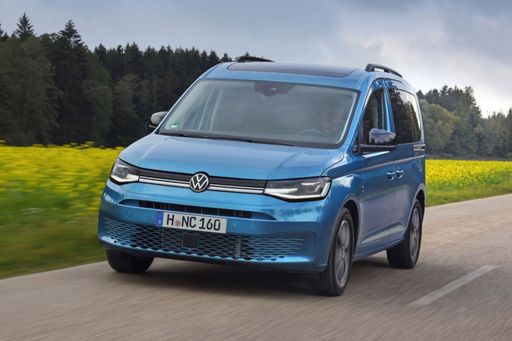
VW Caddy
Costs and Consumption
View detailed analysis
Engine and Performance
View detailed analysis
Dimensions and Body
View detailed analysis
Peugeot 5008
The Peugeot 5008 blends Peugeot's sharp design with the space and versatility families actually need, wrapping clever packaging and a premium-feeling cabin in a crisp, SUV-like silhouette. It drives with more poise than you'd expect from a people carrier, serves up practical touches and flexible seating for everyday chaos, and still looks good when parked outside the school gates.
details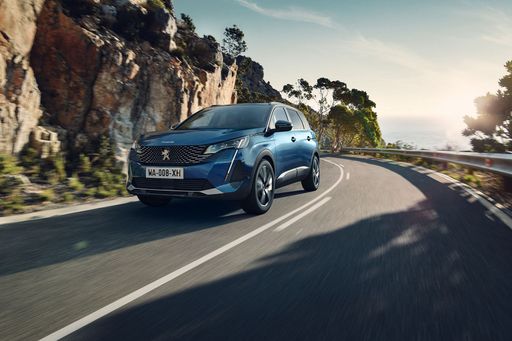

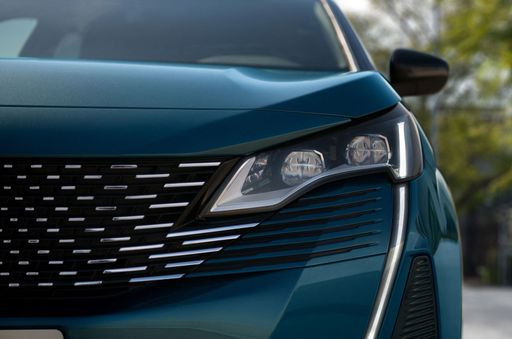

VW Caddy
The VW Caddy is the Swiss-army knife of compact vans — practical, surprisingly refined, and ready to swap a weekend adventure for a grocery run without breaking a sweat. It’s user-friendly, comfortable enough for daily driving, and sensible for buyers who want utility with a dash of style and no drama.
details
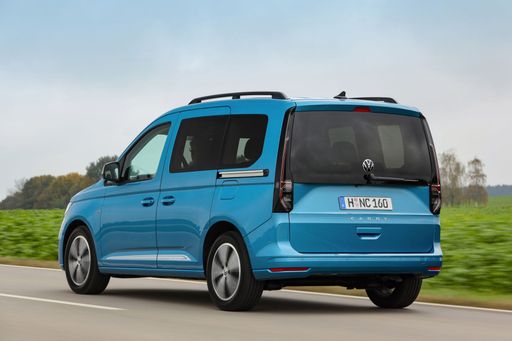
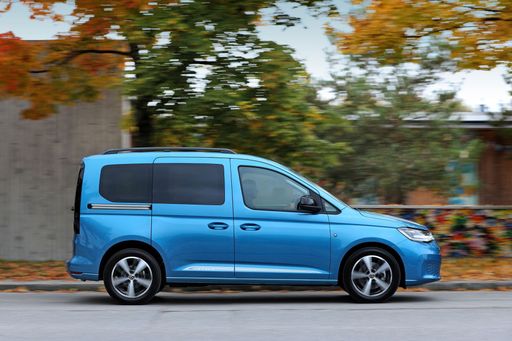
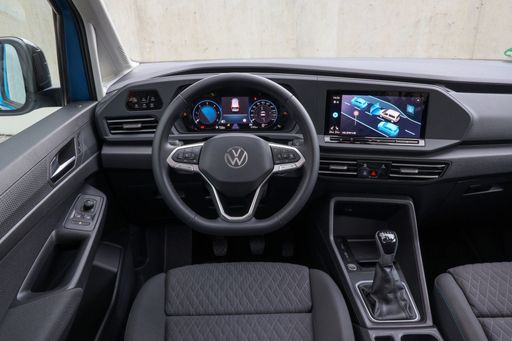
Costs and Consumption |
|
|---|---|
|
Price
37600 - 54200 £
|
Price
27800 - 45900 £
|
|
Consumption L/100km
2.7 - 5.6 L
|
Consumption L/100km
0.5 - 6.9 L
|
|
Consumption kWh/100km
17.8 - 18.6 kWh
|
Consumption kWh/100km
-
|
|
Electric Range
78 - 669 km
|
Electric Range
116 - 121 km
|
|
Battery Capacity
0.4 - 96.9 kWh
|
Battery Capacity
19.70 kWh
|
|
co2
0 - 127 g/km
|
co2
10 - 165 g/km
|
|
Fuel tank capacity
55 L
|
Fuel tank capacity
50 L
|
Dimensions and Body |
|
|---|---|
|
Body Type
SUV
|
Body Type
High Roof Estate
|
|
Seats
7
|
Seats
5 - 7
|
|
Doors
5
|
Doors
5
|
|
Curb weight
1700 - 2344 kg
|
Curb weight
1575 - 1998 kg
|
|
Trunk capacity
294 - 348 L
|
Trunk capacity
-
|
|
Length
4791 mm
|
Length
4500 - 4853 mm
|
|
Width
1895 mm
|
Width
1855 mm
|
|
Height
1694 mm
|
Height
1819 - 1860 mm
|
|
Max trunk capacity
2178 - 2232 L
|
Max trunk capacity
2556 - 3700 L
|
|
Payload
596 - 640 kg
|
Payload
501 - 710 kg
|
Engine and Performance |
|
|---|---|
|
Engine Type
Electric, Petrol MHEV, Plugin Hybrid
|
Engine Type
Petrol, Diesel, Plugin Hybrid
|
|
Transmission
Automatic
|
Transmission
Manuel, Automatic
|
|
Transmission Detail
Reduction Gearbox, Dual-Clutch Automatic
|
Transmission Detail
Manual Gearbox, Dual-Clutch Automatic
|
|
Drive Type
Front-Wheel Drive, All-Wheel Drive
|
Drive Type
Front-Wheel Drive, All-Wheel Drive
|
|
Power HP
145 - 325 HP
|
Power HP
102 - 150 HP
|
|
Acceleration 0-100km/h
6.5 - 10.2 s
|
Acceleration 0-100km/h
11.4 - 14 s
|
|
Max Speed
170 - 220 km/h
|
Max Speed
173 - 186 km/h
|
|
Torque
230 - 511 Nm
|
Torque
220 - 320 Nm
|
|
Number of Cylinders
3 - 4
|
Number of Cylinders
4
|
|
Power kW
107 - 239 kW
|
Power kW
75 - 110 kW
|
|
Engine capacity
1199 - 1598 cm3
|
Engine capacity
1498 - 1968 cm3
|
General |
|
|---|---|
|
Model Year
2024 - 2025
|
Model Year
2024
|
|
CO2 Efficiency Class
A, D, B
|
CO2 Efficiency Class
E, F, B
|
|
Brand
Peugeot
|
Brand
VW
|
Is the Peugeot 5008 offered with different drivetrains?
Available configurations include Front-Wheel Drive or All-Wheel Drive.




